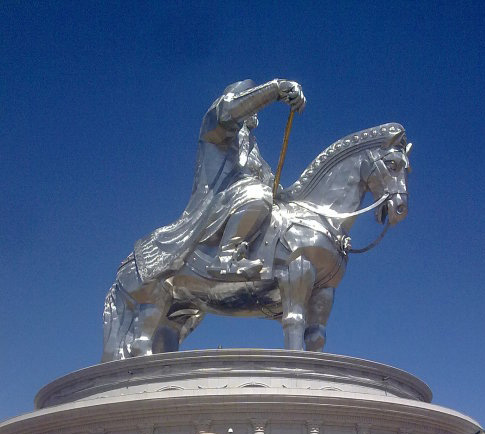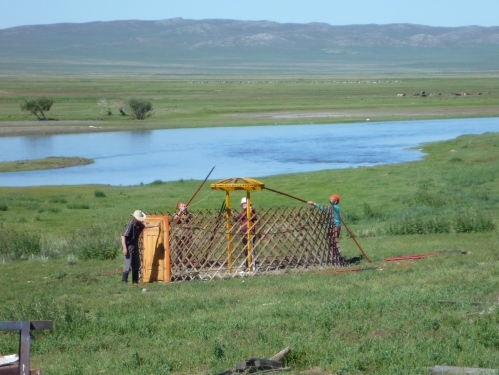What is the meaning of water? In my everyday life, water is a given. Even this year, when at least one quarter of the US has been stricken by drought, water continues to flow from the tap and my family is unaffected by its scarcity. I remember the California droughts of the 1970s, when my brother and I shared bathwater, I learned not to flush so much, and water was rationed. Even still, our very sustenance, our wealth was not threatened by the lack of water. In Mongolia, as in many other developing countries, people depend on water not just to slake their thirst but to sustain their livelihoods. Mongolian herders must bring their animals to a water body daily. In times of drought, most lakes dry up, leaving only a few “permanent” lakes available to dozens of herders and thousands (hundreds of thousands?) of animals. Steppe lakes also serve as virtual “gas stations” for migratory birds and waterfowl – they are hotspots of diversity. Without water, animals perish, food disappears, and people and ecosystems suffer. In a semi-arid region like the steppe, water allows people and ecosystems to transform solar energy into a mobile and flexible product via photosynthesis and primary consumption by livestock. In Mongolia, water is energy.
-
Recent Posts
Top Posts
archives
-
Join 18 other subscribers








